Security Enhancement for Climate Changes impacting Urban Resources (SECCURe)

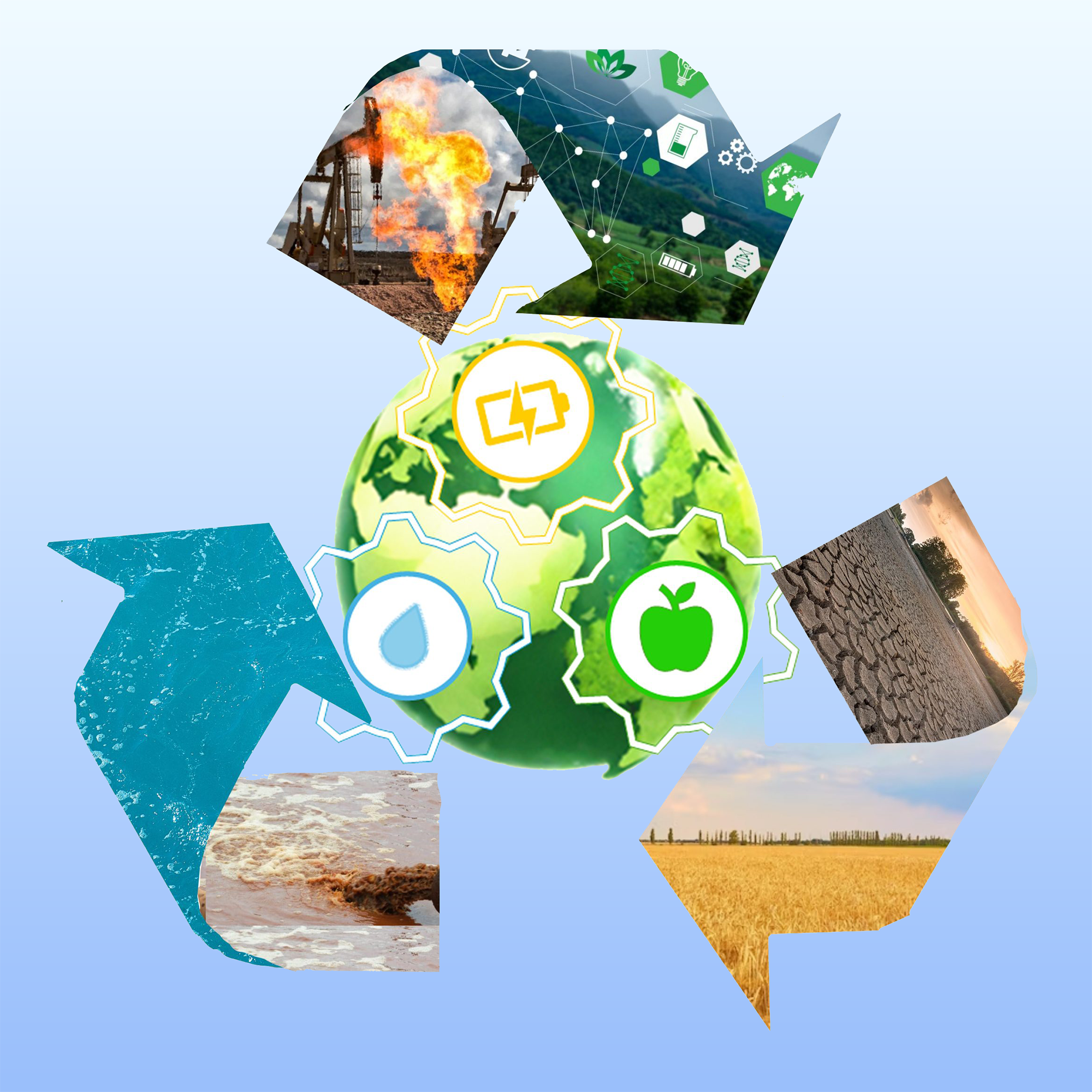
The convergence of climate change, population growth, and geopolitical instability is intensifying pressures on critical resources: water, energy, and food. These interconnected lifelines are increasingly strained, leading to widening supply-demand gaps with projected exacerbation by 2030. The resulting complexities pose significant challenges to human security.
Recent history is marked by unprecedented migratory crises in Europe, the U.S., and beyond, driven by factors such as persecution, conflict, and environmental disasters. The intimate link between human health and access to safe water, reliable energy, and nutritious food cannot be overstated. Deficiencies in any of these essentials contribute to malnutrition, waterborne diseases, and broader health issues.
The Mediterranean, Middle East, and North Africa (MENA) region is anticipated to bear the brunt of climate change impacts. Many nations within this region grapple with extreme water scarcity, limited freshwater resources, heavy energy dependence, population health challenges, and growing populations. The overlay of armed conflicts in recent years, including in Syria, Libya, Yemen, and Ukraine, has exacerbated these pressures, particularly on developing countries. The emergence of new pollutants further complicates the preservation of resource quality.
Developing innovative solutions and technologies to address these intertwined challenges, often referred to as the water-energy-food nexus, is imperative. Such advancements hold the promise of enhancing societal safety and creating new economic opportunities. However, decision-makers currently lack the tools to accurately quantify the impacts of climate, demographic, disaster, and geopolitical shocks on these interconnected systems. A convergent approach, uniting diverse expertise, is essential to develop multifaceted solutions that address the social, economic, technological, and policy dimensions of this complex challenge.
The Role of the Texas A&M Energy Institute
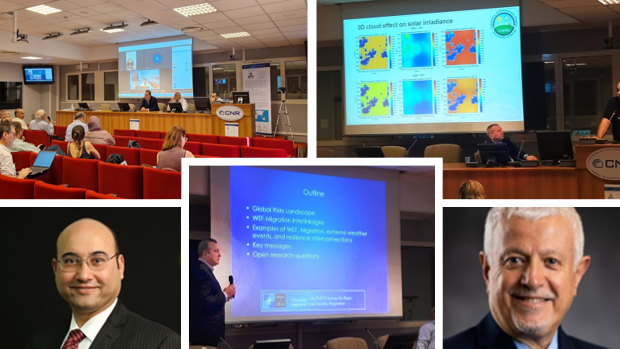
The Texas A&M Energy Institute catalyzed the development of the proposal concept, partner identification, and workshop organization, and contributed significantly to the workshop discussions. Prof. Mahmoud El-Halwagi initiated collaboration with Dr. Carlo Pastore, while Dr. Konstantinos Pappas, Assistant Director of the Texas A&M Energy Institute, conceived the proposal and Jeff Sammons, Executive Associate Director of the Texas A&M Energy Institute, facilitated engagement with Egyptian partners. Dr. Pappas and Dr. Rabi Mohtar, Professor in the Agriculture and Life Sciences Department of Biological and Agricultural Engineering and the Zachry Department of Civil and Environmental Engineering, as well as a Senior Advisor for Resource Nexus in the Texas A&M Energy Institute, were instrumental in the workshop’s scientific discourse. Dr. Pappas presented on the far-reaching consequences of climate risks on scarce resources, migration patterns, and regional security, emphasizing the need for a holistic systems approach to address challenges in vulnerable regions. Professor Mohtar explored the dynamic interplay of water, energy, food, and health, highlighting the importance of innovative solutions to bridge existing gaps and address the disproportionate impact of climate change on the MENA region. Beyond their presentations, Dr. Pappas chaired a session on Circular Economy, and Mr. Sammons led a session on Solar Energy.
The SECCURe Advanced Research Workshop (ARW)
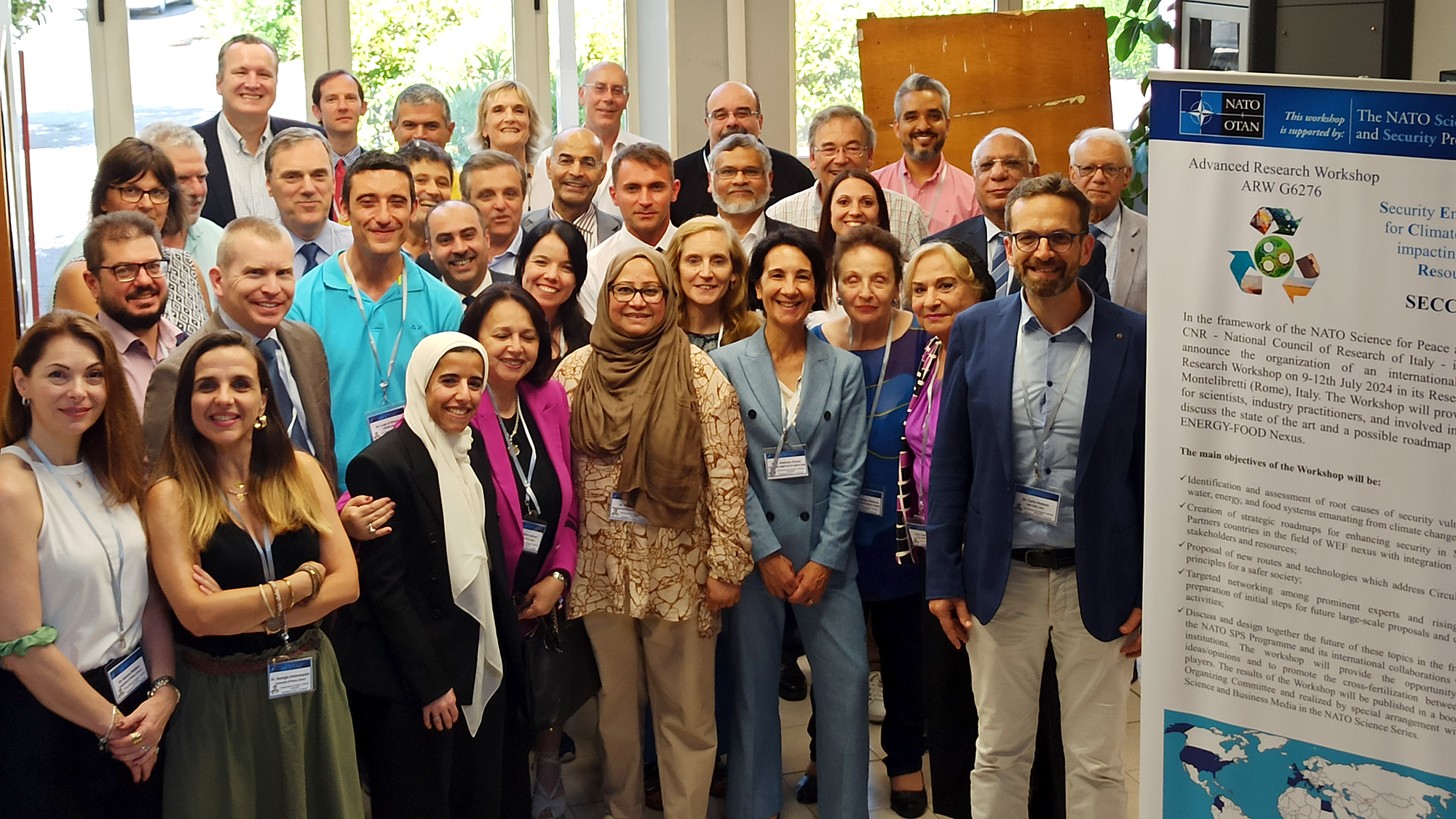
Thirty-nine leading scientists from twelve NATO and NATO-partner nations convened in Rome to address escalating security threats arising from the interconnected challenges of climate change, population growth, and geopolitical instability on water, energy, food, security, and human mobility. Organized by Dr. Carlo Pastore, the NATO-funded SECCURe ARW examined the complex interplay of these resources and their critical role in supporting livelihoods and economic growth. Topics included the impact of extreme weather events, disasters, human mobility, circular economy, process systems, and waste management.
The workshop’s structure aligned with the aforementioned concepts. NATO Programme Manager Mr. Richard Brewin emphasized climate change as a defining challenge and threat multiplier, underscoring NATO’s commitment to research on its security implications. The workshop delved into the state-of-the-art of resource depletion in the Mediterranean region, compared it with global conditions, and analyzed social implications. Through intensive brainstorming, participants identified emerging risks and best practices for promoting secure regional development.
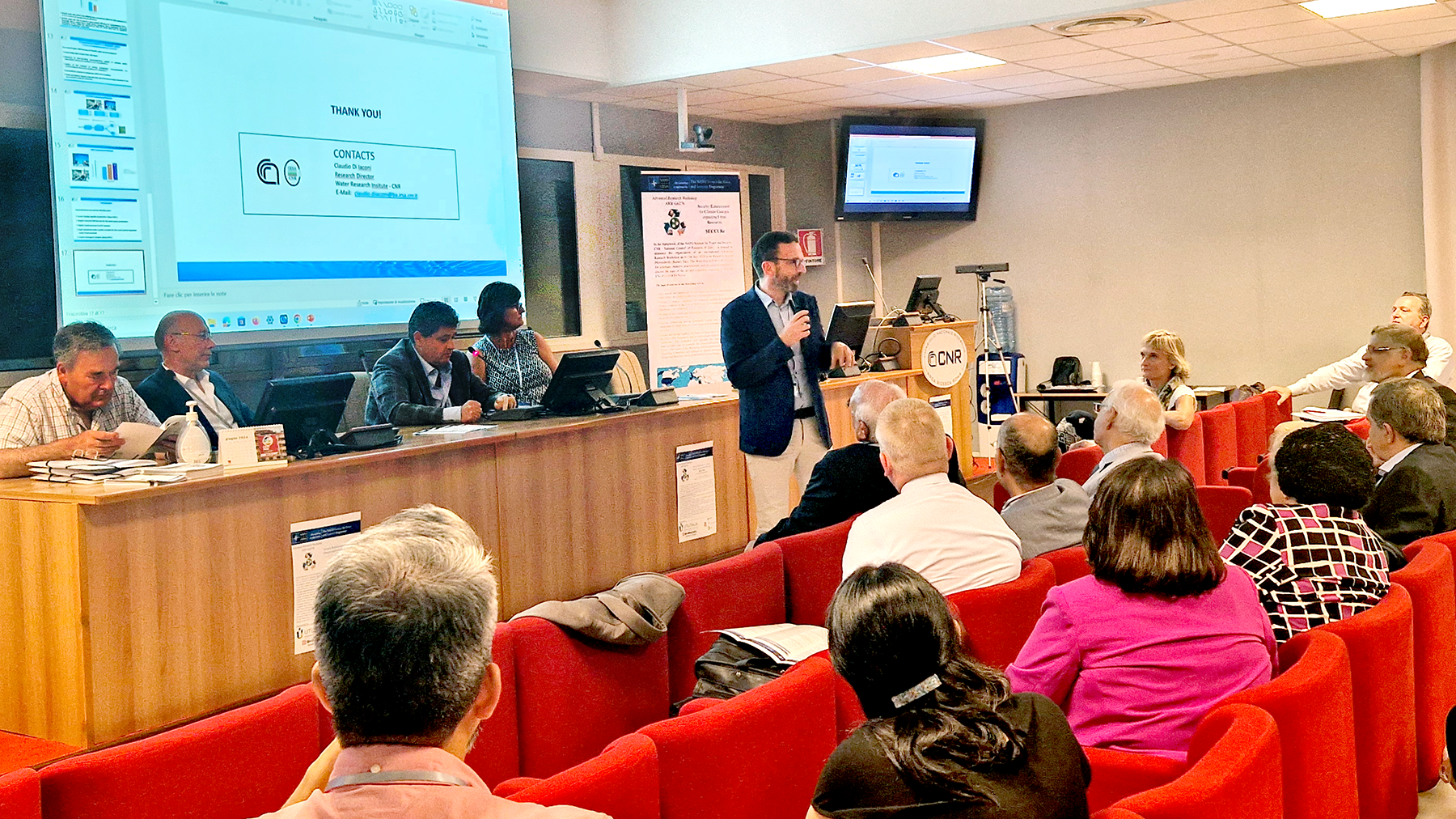
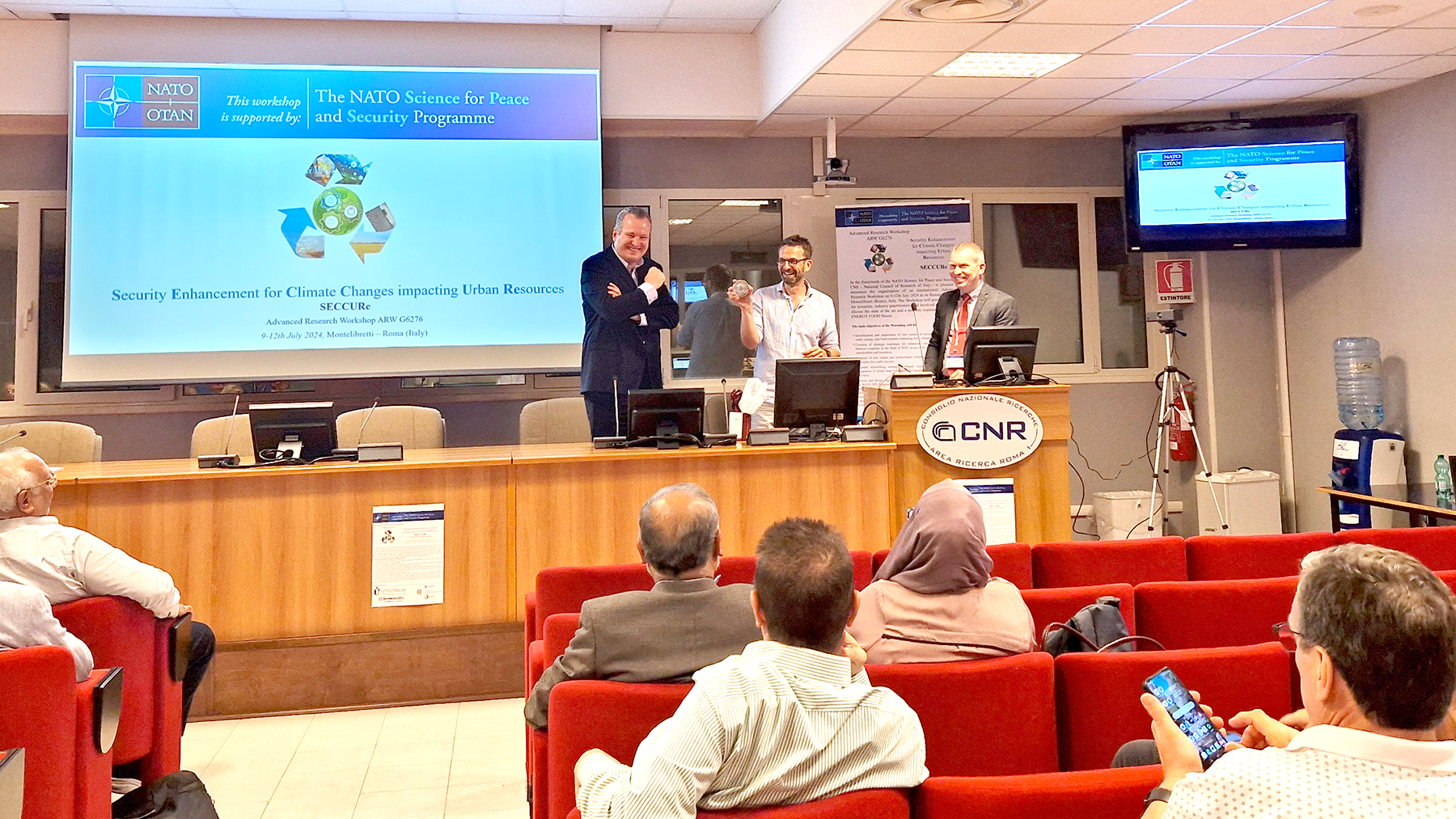
New strategies were proposed for improved resource management and full exploitation of renewable resources, including advancements in wastewater treatment, smart cultivation, and biomass valorization. The integration of technologies and process design was emphasized to create biorefineries with lower greenhouse gas emissions, aligned with sustainable growth and human well-being. The workshop underscored the principles of circular economy and the importance of water-energy-food interconnections across diverse geographical contexts.
Recognizing the significance of international cooperation in addressing environmental security challenges, the workshop also considered social security issues arising from environmental and resource constraints, including health risks, climate change, water scarcity, and energy needs. The diverse participation of experts from around the world ensured a comprehensive perspective on resource optimization.
Goals and Outcomes
Through productive discussions, participants identified the root causes of security vulnerabilities in water, energy, and food systems and developed strategic roadmaps to enhance security in NATO and NATO-partner countries. The workshop fostered networking among experts, facilitating the development of future large-scale proposals and collaborative activities.
Disclaimer: The observations and recommendations made at the Workshop and presented in this article reflect those of participants and contributors only, and they should not necessarily be regarded as reflecting NATO views or policy.
